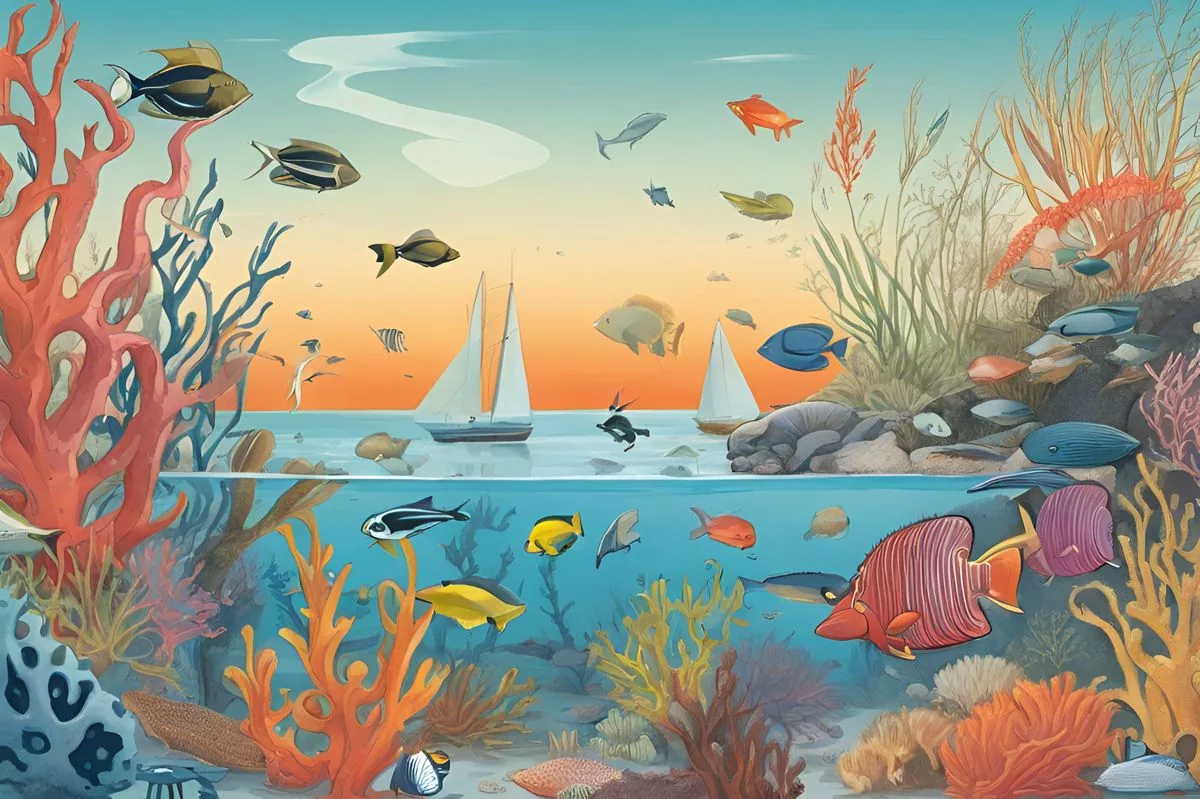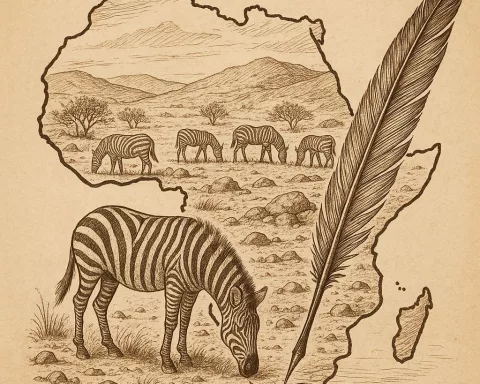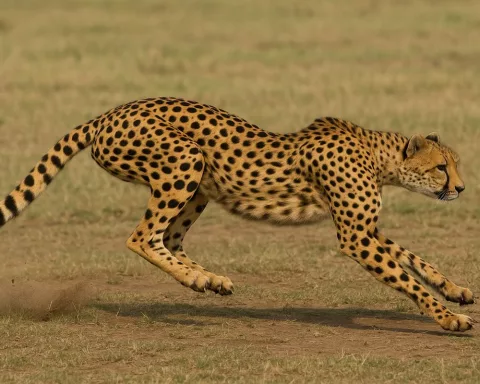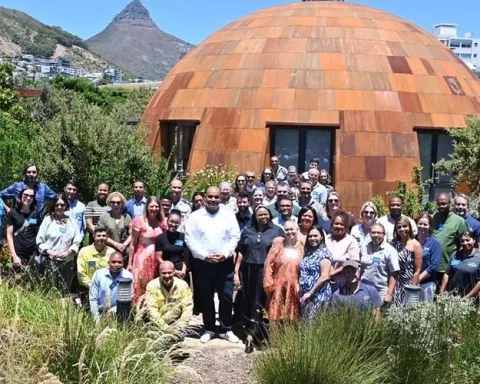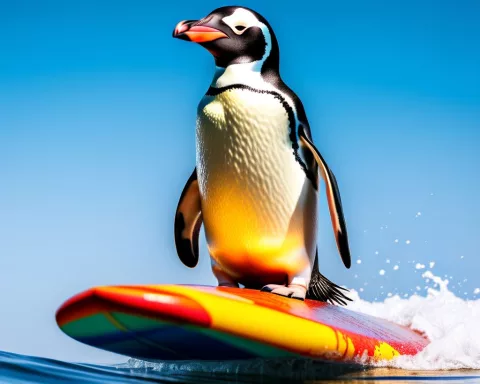Join filmmaker and emotional ecology advocate Craig Foster on a journey to reconnect with nature in Cape Town. From diving at Windmill Beach to tracking wildlife at Cape Point Nature Reserve, experience the beauty of South Africa while keeping conservation in mind. Foster implores visitors to respect and protect the environment through activities like beach cleanups and volunteering with local conservation organizations. By appreciating and interacting with nature, we can better understand the necessity of safeguarding it for future generations.
Discover the best ways to connect with nature in Cape Town with filmmaker and emotional ecology advocate, Craig Foster. From diving at Windmill Beach to tracking wildlife at Cape Point Nature Reserve, Foster shares his favorite spots to immerse oneself in the natural world. Experience the thrill of surfing at Muizenberg Beach or whale-watching at False Bay, all while keeping conservation in mind.
Renowned filmmaker and advocate for emotional ecology, Craig Foster, co-founder of the Sea Change Project, has established an impressive reputation through his work, particularly the 2020 award-winning documentary, “My Octopus Teacher”. Foster’s latest book, “Amphibious Soul: Finding the Wild in a Tame World,” explores the crucial need for humanity to reestablish a basic bond with nature. South Africa, Foster’s place of origin and what he affectionately refers to as “the world’s heart,” acts as the optimal medium for promoting this renewed relationship with the wild.
Embracing the Underwater World: Windmill Beach and Its Wonders
Foster starts each day with a ritualistic dive at Windmill Beach, a routine he praises for its therapeutic effect on his mind and body. This beautiful location, typically sheltered from the swell, provides a haven for a diverse range of marine life, including a variety of seaweeds, fish schools, octopuses, and sometimes, small sharks. Although this location is a marine paradise, fishing and other forms of marine harvesting are strictly prohibited due to its location within a protected area’s boundaries.
For Foster, aligning one’s activities with both the environment and individual capabilities is essential. To beginners eager to explore the world of diving, Foster suggests embracing the chill of the water, relishing the subsequent dopamine boost, and finishing off the experience basking on a sun-heated rock while enjoying a braai by the sea.
The Lure of Wildlife: Cape Point Nature Reserve and Tracking Adventures
Another gem in Cape Town’s treasure trove is the [Cape Point Nature Reserve](https://capetown.today/a-trip-to-northern-suburbs-of-cape-town-an-eclectic-blend-of-nature-and-urbanization/). Housing the Cape of Good Hope, this reserve is replete with indigenous fynbos, native Chacma baboons, and unique Cape clawless otters. A keen wildlife tracker, Foster views tracking as a “portal that transcends time.” He advises budding trackers to remain vigilant for nature’s signs such as footprints in the sand, which can offer riveting insights into the wild’s nocturnal activities.
Exploring Cape Town’s Tidal Pools and Muizenberg Beach
For those venturing into swimming, Cape Town’s tidal pools are perfect practicing spots. These sea-replenished pools have been the backdrop for some of Foster’s most extraordinary encounters with marine life, especially octopuses. He suggests visiting early in the morning to escape the crowds, and taking a moment to float on your back, gaze at the sky, and soak in the peaceful atmosphere.
For thrill-seekers, Foster endorses [Muizenberg Beach](https://capetown.today/muizenberg-beach-huts-a-vibrant-transformation/), a popular surfing location in Cape Town. After surfing, Foster recommends immersing in the ocean for a dopamine surge that alters your brain chemistry. Muizenberg Beach also hosts surf lessons, kayak surfing, windsurfing, and kitesurfing. For a quieter experience, the Tokai Trails provide spectacular ocean views, away from the noise and bustle.
The Call to Conservation: False Bay, Boulders Beach, and De Hoop Nature Reserve
False Bay is an ideal spot for whale-watchers, providing a safe haven for these majestic creatures from June to December. Foster implores visitors to remember their obligation to the environment by participating in beneficial activities like beach cleanups or volunteering at local conservation organizations.
Another remarkable location is [Boulders Beach](https://capetown.today/boulders-beach-was-named-one-of-the-best-beaches-in-the-world/), famous for its colony of African Penguins. Despite conservation efforts, this colony, established in the early 1980s, remains at risk. Foster advises visitors to respect these intriguing animals and keep a safe distance.
A further adventure could take you to [De Hoop Nature Reserve](https://capetown.today/jean-kleyns-inspiring-journey-back-home/), a three-hour drive from Cape Town. Home to herds of eland, bontebok, and ostriches, a stunning variety of bird species, and plenty of whale-watching opportunities, fishing has been prohibited in this reserve for over 30 years to conserve the area’s abundant biodiversity on land and underwater.
In Foster’s view, these escapades offer an opportunity to restore our connection with nature. He emphasizes that our survival directly depends on the health of our planet. The more we interact with and appreciate the world around us, the more we comprehend the necessity of safeguarding it for future generations. Undoubtedly, Foster’s fervor for nature and his dedication to its conservation are both admirable and inspirational.
1. Who is Craig Foster and what is emotional ecology?
Craig Foster is a renowned filmmaker, advocate for emotional ecology, and co-founder of the Sea Change Project. Emotional ecology is a concept that promotes establishing a bond with nature to promote emotional and mental well-being.
2. What are some recommended activities to connect with nature in Cape Town according to Craig Foster?
Craig Foster recommends diving at Windmill Beach, tracking wildlife at Cape Point Nature Reserve, exploring Cape Town’s tidal pools, and visiting Muizenberg Beach for surfing and other water activities. He also encourages visitors to participate in beneficial activities such as beach cleanups and volunteering with local conservation organizations.
3. What is Windmill Beach, and what can visitors expect to see there?
Windmill Beach is a marine paradise in Cape Town that provides a haven for a diverse range of marine life, including a variety of seaweeds, fish schools, octopuses, and sometimes, small sharks. Visitors can expect to see a variety of marine life while diving or engaging in other water activities.
4. What is Cape Point Nature Reserve, and what wildlife can visitors expect to see there?
Cape Point Nature Reserve is a reserve that houses the Cape of Good Hope and is replete with indigenous fynbos, native Chacma baboons, and unique Cape clawless otters. Visitors can also expect to engage in wildlife tracking and see nature’s signs such as footprints in the sand, which can offer riveting insights into the wild’s nocturnal activities.
5. What is False Bay, and what can visitors expect to see there?
False Bay is an ideal spot for whale-watchers, providing a safe haven for these majestic creatures from June to December. Visitors can also participate in beneficial activities like beach cleanups or volunteering at local conservation organizations.
6. What is Boulders Beach, and what wildlife can visitors expect to see there?
Boulders Beach is famous for its colony of African Penguins. Despite conservation efforts, this colony remains at risk. Visitors are advised to respect these intriguing animals and keep a safe distance.

